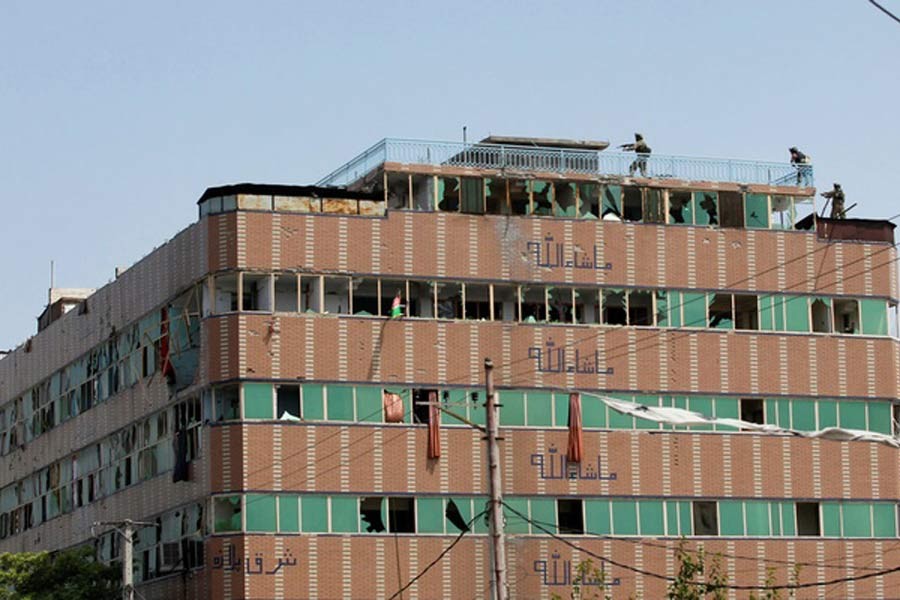Afghan security forces laid siege to a prison seized by Islamic State fighters in the eastern city of Jalalabad on Monday, with at least 29 people killed after the militants' overnight assault led to a mass jailbreak.
More than 300 prisoners were at large, Attaullah Khugyani, spokesman for the governor of Nangarhar province, said. Of the 1,793 prisoners, more than 1,025 had tried to escape and been recaptured and 430 had remained inside, reports Reuters.
"The rest are missing," he said.
After detonating a car bomb at the entrance on Sunday evening, IS gunmen overran the prison where many IS militants captured during a campaign in the past month were being held, along with Taliban fighters and common criminals.
Mohammad Idres, one of the prisoners trapped inside and contacted by cellphone, said he could see could around four bodies on the ground outside. "We are very hungry, it's very hot and we don't have water," he told Reuters.
"Sometimes it is quiet and then firing starts," he said. "The security forces cannot seem to advance because the attackers hold strategic points, including the watchtowers."
IS claimed responsibility for the attack, which came a day after the Afghan intelligence agency said special forces had killed a senior IS commander near Jalalabad, the provincial capital of Nangarhar.
Officials said Afghan Chief of Army Staff Lt. Gen Yasin Zia arrived on Monday to oversee the operation, involving special forces, to clear the IS fighters holed up inside the prison.
Khugyani said civilians, prisoners and members of security forces were among the 29 dead and more than 50 wounded.
"Eight gunmen were killed as some areas, where the attackers had taken positions, were cleared," he said.
As the siege dragged through the day, the normally bustling city was placed under a curfew.
"Jalalabad is completely empty," Qaderi said.
Some 130 km (80 miles) east of Kabul, Jalalabad lies on the highway leading to the Khyber Pass and the Pakistani city of Peshawar.
A United Nations report last month estimated there are around 2,200 IS members in Afghanistan, and that while the group has lost territory and its leadership has been depleted, it remains capable of carrying out high-profile attacks.


